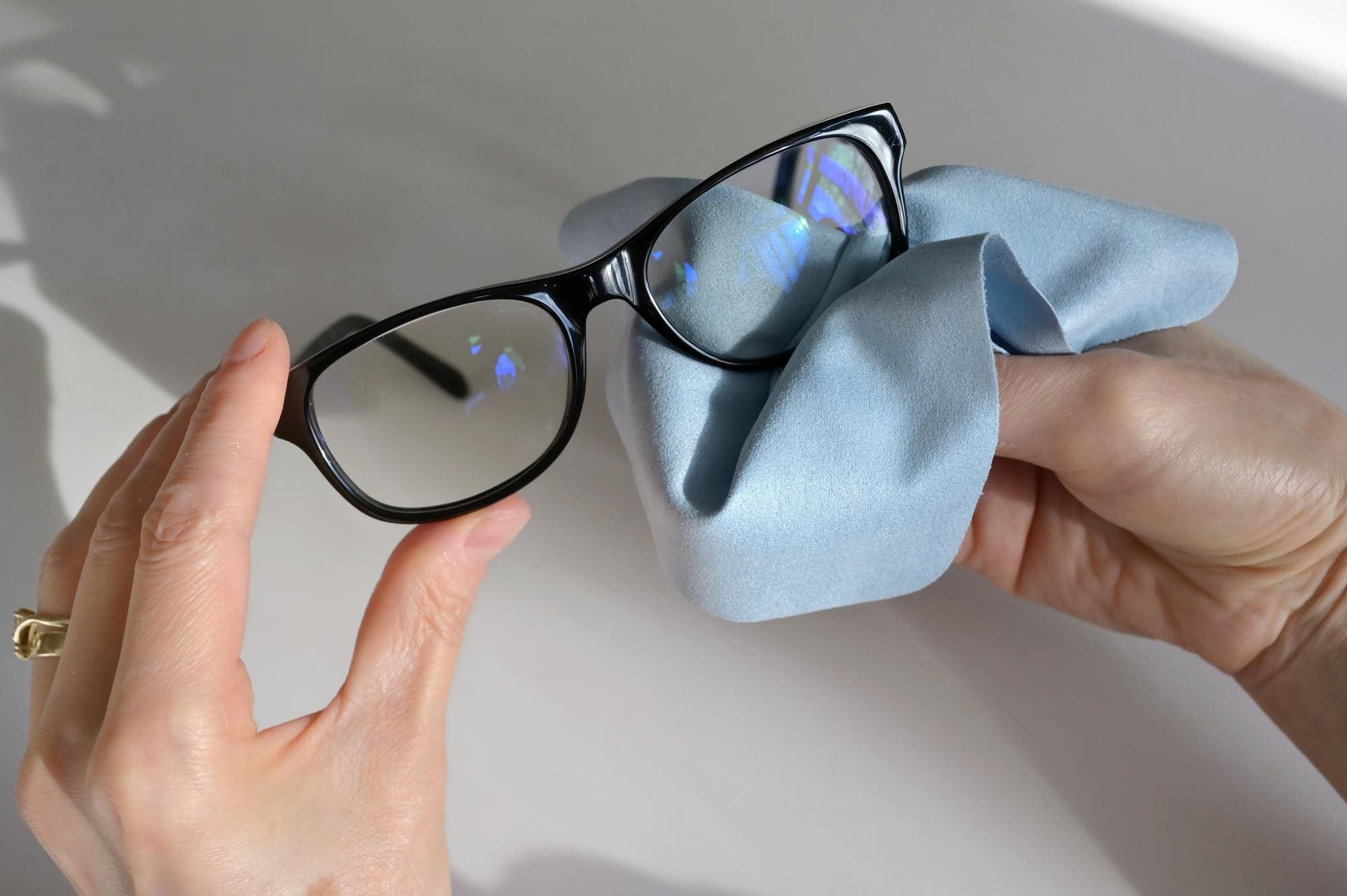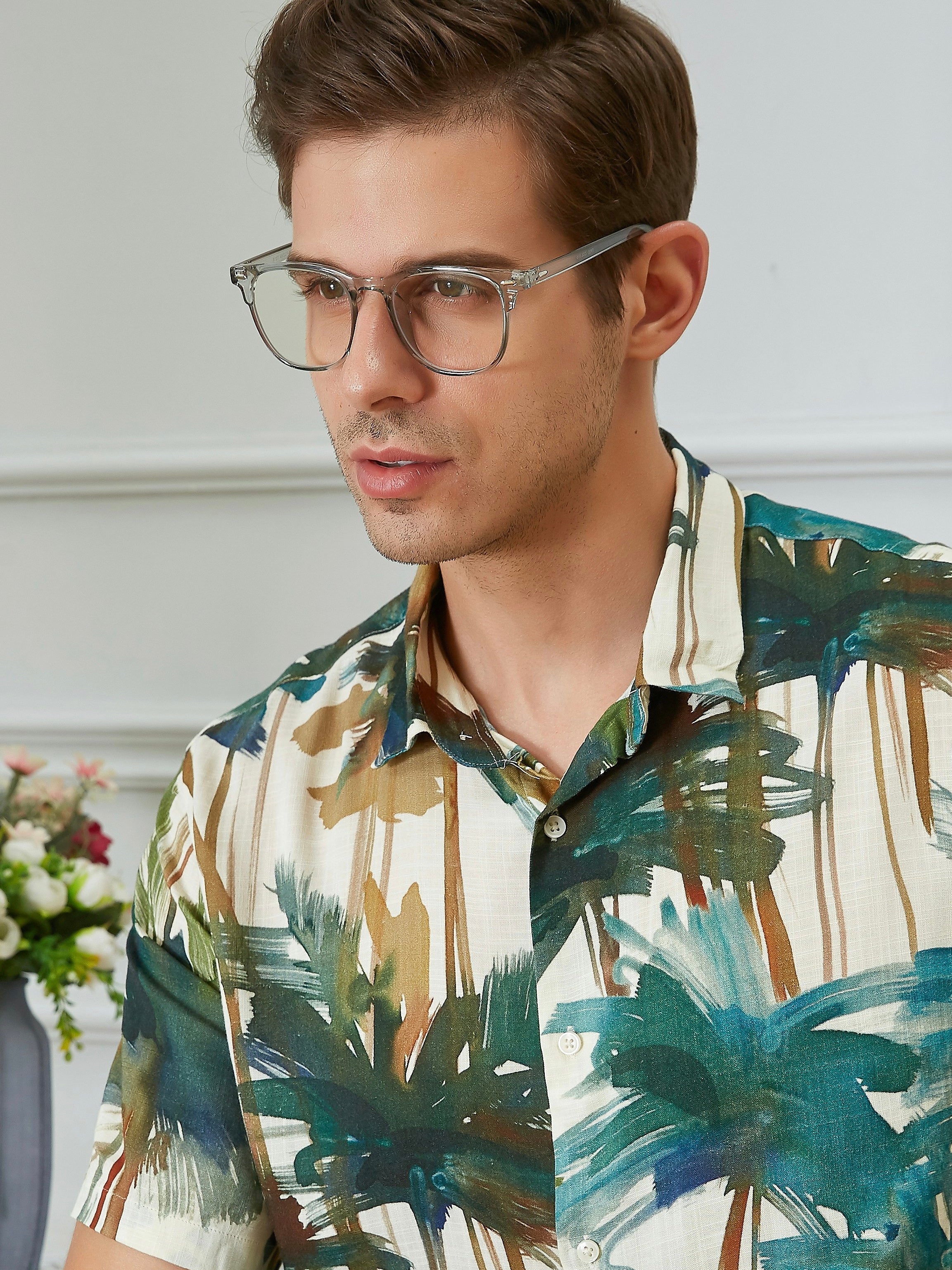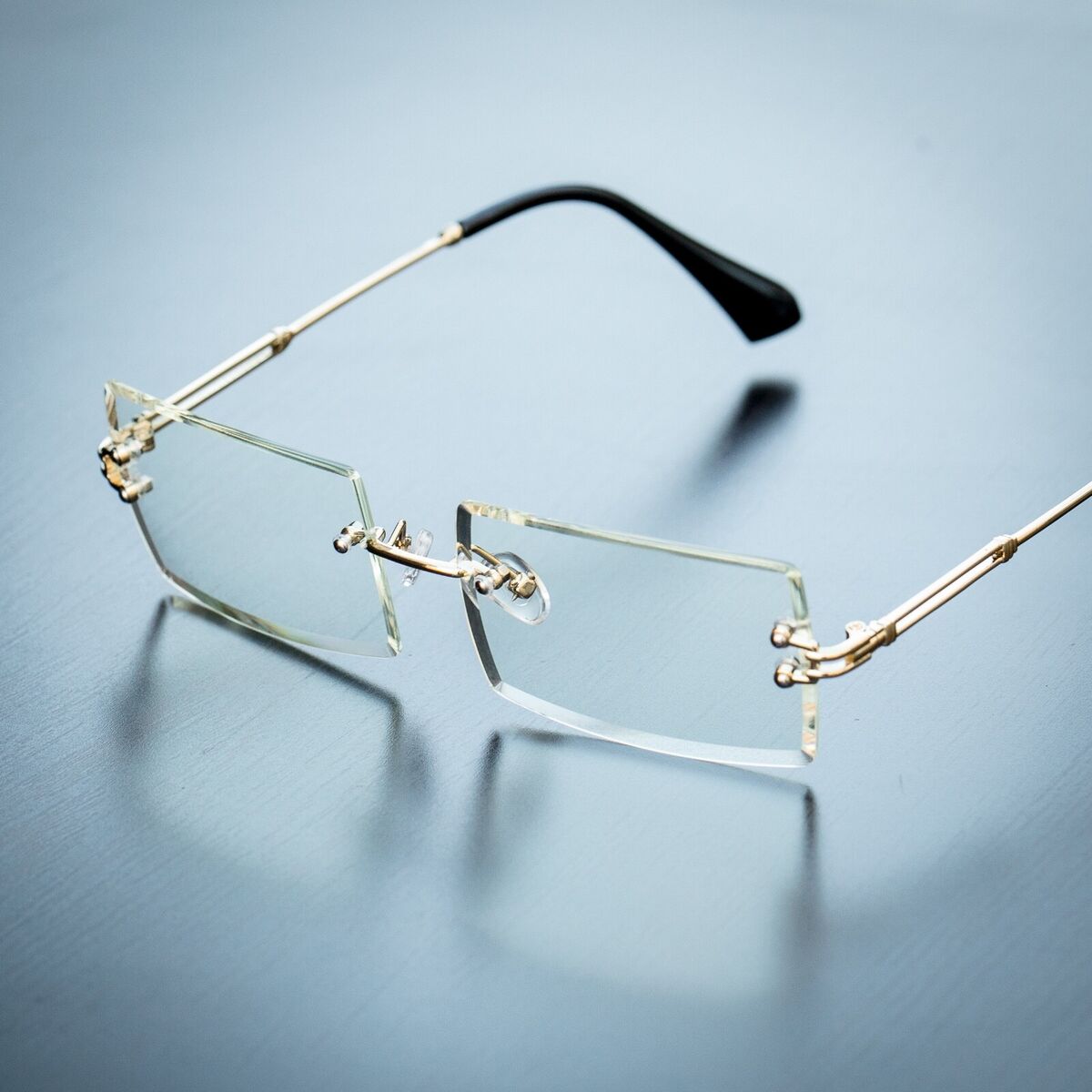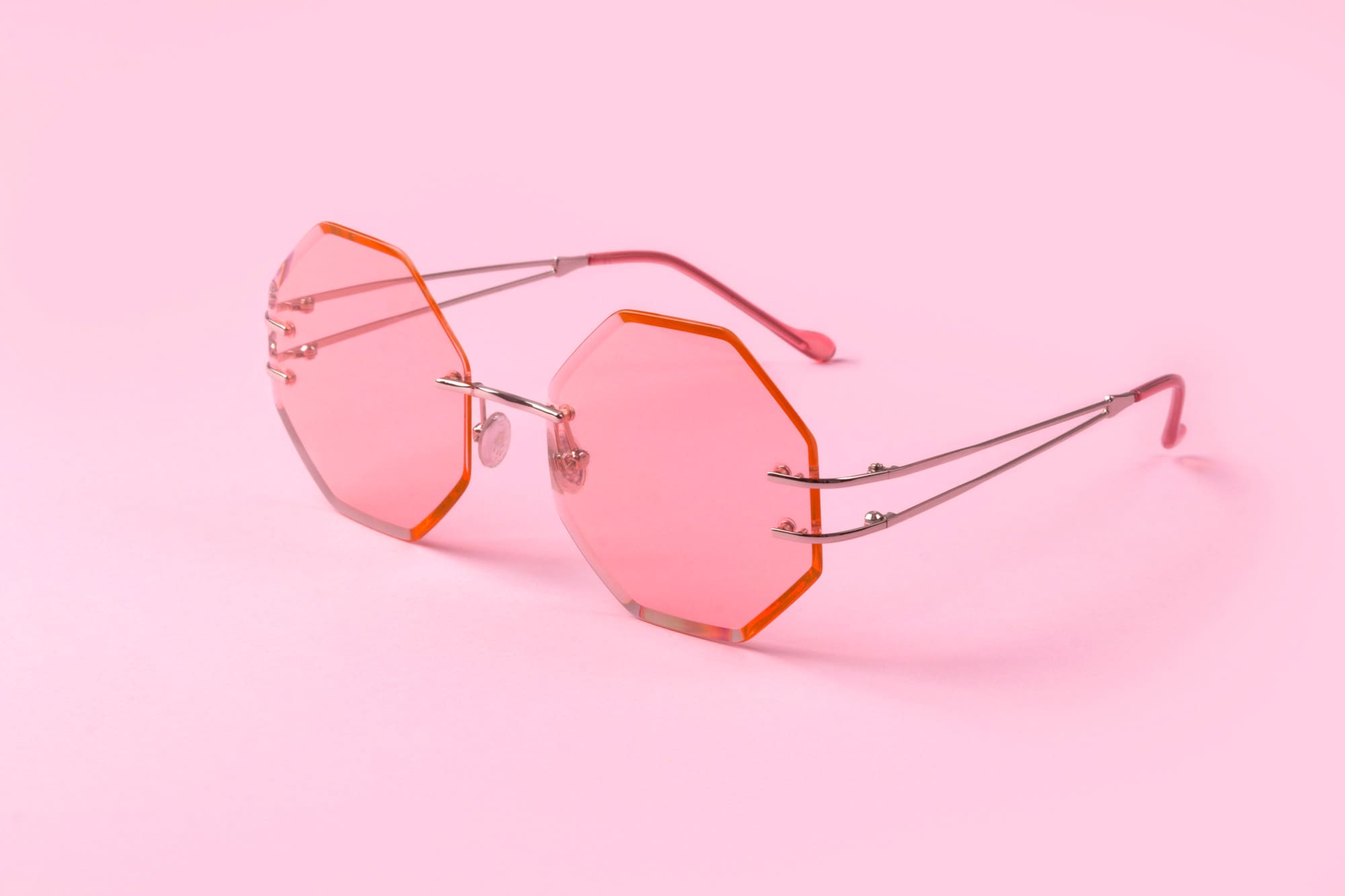
How to Clean Glasses Safely and Properly. Simple Rules and Methods

Your glasses face daily battles against fingerprints, dust, skin oils, and smudges that blur your vision and strain your eyes. Learning how to clean glasses correctly protects your investment while maintaining crystal-clear sight. Many people unknowingly damage their lenses through improper cleaning habits, but the right approach takes less than a minute and requires only basic household items.
Key Takeaways
-
Lukewarm water and lotion-free dish soap provide the safest, most effective daily cleaning method for all lens types
-
Microfiber cloths prevent scratches, while paper towels, tissues, and clothing cause permanent lens damage through micro-abrasions
-
Hot water damages protective lens coatings, and household glass cleaners contain chemicals that harm specialized eyeglass treatments
-
Daily cleaning prevents bacteria buildup, reduces eye strain, and extends the lifespan of your frames and lenses
Why Proper Eyeglass Cleaning Matters
Your shirt sleeve might seem convenient, but clothing fabrics contain dust particles that scratch lenses. The same applies to tissues, paper towels, napkins, and toilet paper. These paper products feel soft but contain wood fibers rough enough to damage lens surfaces and leave lint behind.
Avoid these common mistakes when cleaning your glasses:
-
Paper towels, tissues, and napkins that contain abrasive wood fibers
-
Clothing and shirt sleeves that trap dust particles
-
Household glass cleaners with ammonia or bleach
-
Bathroom cleaners, vinegar, and harsh chemicals
-
Saliva, which contains bacteria and enzymes
-
Hot water that damages coatings and warps frames
-
Hand sanitizer applied directly to lenses or frames
Household glass cleaners designed for windows contain ammonia, bleach, or high acid concentrations that destroy lens coatings. These chemicals strip anti-reflective treatments and damage blue light filters. Avoid bathroom cleaners, vinegar, and other harsh household products.
Saliva ranks among the worst cleaning methods despite its popularity. Beyond being unhygienic, saliva contains enzymes and bacteria that shouldn't contact the eye area. Skip this habit entirely and reach for proper cleaning materials instead.
Hot water presents a less obvious danger. Water temperatures comfortable for washing dishes can damage specialized lens coatings and warp plastic frame materials. Stick with lukewarm water at temperatures suitable for washing your face.
The Best Way to Clean Eyeglasses Step by Step
The best way to clean eyeglasses starts with clean hands. Wash thoroughly using lotion-free soap, as lotions transfer directly to lenses. Dry your hands with a lint-free towel.
Run your glasses under a gentle stream of lukewarm tap water. This initial rinse removes dust particles that could scratch lenses during cleaning. Avoid hot water entirely; it damages anti-reflective coatings and can warp plastic frames.
Apply a single drop of lotion-free dish soap to each lens. Gently rub both sides with your fingertips, spreading soap evenly. Clean the entire frame, paying special attention to nose pads and temple tips where skin oils accumulate. For metal frames with adjustable nose pads, use a soft-bristled toothbrush around the pad arms and hinges where grime collects.
Rinse thoroughly under lukewarm running water, ensuring all soap residue disappears. Gently shake glasses to remove excess water. Dry using a clean, lint-free towel that hasn't been washed with fabric softener or dryer sheets, which leave residues that smear. Check for remaining streaks, removing any with a clean microfiber cloth designed for eyewear.
Essential Tools for Proper Eyeglass Care
Microfiber cloths represent the single most important tool for eyeglass care. These ultra-fine synthetic fibers lift oils and smudges without scratching. Purchase several cloths so you always have a clean one available. Wash them regularly with lotion-free dish soap and air dry; skip fabric softener in machine washing.
|
Tool |
Purpose |
Usage Tips |
|
Microfiber cloth |
Daily wiping and drying |
Wash weekly, air dry only |
|
Lotion-free dish soap |
Deep cleaning lenses and frames |
One drop per lens is enough |
|
Lens cleaning spray |
Quick touch-ups on the go |
Spray on cloth, not lenses |
|
Soft-bristled toothbrush |
Cleaning hinges and nose pads |
Use with soapy water weekly |
|
Hardshell case |
Storage and protection |
Always store lenses facing up |
Eyeglass cleaning solution provides convenience when water isn't accessible. Choose sprays specifically formulated for eyeglasses that state compatibility with polycarbonate lenses and anti-reflective coatings. Apply the spray to your microfiber cloth rather than directly on lenses. Pre-moistened lens wipes work well for quick touch-ups but shouldn't replace thorough water-and-soap cleaning.
A hardshell eyeglass case protects your investment when glasses aren't being worn. Cases prevent crushing, scratching, and dust accumulation. Always store glasses with lenses facing up if you must place them outside a case.
What Never to Use When Cleaning Glasses
Your shirt sleeve might seem convenient, but clothing fabrics contain dust particles that scratch lenses. The same applies to tissues, paper towels, napkins, and toilet paper. These paper products feel soft but contain wood fibers rough enough to damage lens surfaces and leave lint behind.
Household glass cleaners designed for windows contain ammonia, bleach, or high acid concentrations that destroy lens coatings. These chemicals strip anti-reflective treatments and damage blue light filters. Avoid bathroom cleaners, vinegar, and other harsh household products.
Saliva ranks among the worst cleaning methods despite its popularity. Beyond being unhygienic, saliva contains enzymes and bacteria that shouldn't contact the eye area. Skip this habit entirely and reach for proper cleaning materials instead.
Hot water presents a less obvious danger. Water temperatures comfortable for washing dishes can damage specialized lens coatings and warp plastic frame materials. Stick with lukewarm water at temperatures suitable for washing your face.

Daily Cleaning vs Deep Cleaning
Daily eyeglass cleaning should take about 20 seconds and involves a quick rinse with water and dish soap followed by drying with a microfiber cloth. This routine removes accumulated oils, dust, and smudges. Most eyeglass wearers should perform this light cleaning daily.
|
Cleaning Type |
Frequency |
Time Required |
Focus Areas |
|
Daily cleaning |
Once or twice per day |
20 to 60 seconds |
Lenses and frame surface |
|
Weekly deep cleaning |
Once per week |
2 to 3 minutes |
Hinges, nose pads, temple tips |
|
Professional ultrasonic |
Every 6 months |
5 to 10 minutes |
Complete frame and lens |
Weekly deep cleaning deserves extra attention on frame components. Use a soft toothbrush with soapy water to scrub around hinges, nose pads, and the junction where lenses meet frames. These areas trap skin oils, makeup, sweat, and dirt that daily cleaning misses.
Professional ultrasonic cleaning provides the deepest clean possible, using high-frequency sound waves to remove stubborn grime. Most optical shops offer this service, ideally performed every six months. This often comes free with annual eye exams or frame adjustments.
Special Considerations for Different Lens Types
Anti-reflective coatings require gentle handling as they sit on the lens surface. Use only cleaning solutions approved for coated lenses and avoid abrasive materials. The water-and-soap method works perfectly for anti-reflective lenses with soft microfiber cloths.
Blue light filtering glasses clean like regular prescription glasses. The coating typically resides beneath a protective hard coat, making it durable enough for standard cleaning methods. Avoid harsh chemicals but regular dish soap poses no risk.
Anti-fog lenses need special attention. Some anti-fog treatments can be damaged by soap or excessive water exposure. Check manufacturer instructions for your specific coating. Many anti-fog lenses only require gentle wiping with a dry microfiber cloth.

Preventing Damage Through Proper Storage
Always store glasses in a clean, rigid case when possible. This prevents dust accumulation, protects against crushing, and shields lenses from scratches. Never place glasses lens-down on any surface. When you must set glasses down temporarily without a case, position them with temples extended and lenses facing upward.
Avoid extreme temperatures that warp frames and damage coatings. Don't leave glasses in hot cars where dashboard temperatures can exceed 150 degrees. Keep glasses away from chemicals, including hairspray, perfume, and cleaning products. Apply personal care products before putting on glasses.
When to Seek Professional Help
Visit your optician if scratches impair vision despite careful cleaning. Deeper damage affects optical clarity and lens impact resistance. Loose screws, misaligned frames, or damaged nose pads require professional adjustment. Most optical shops provide free adjustments for purchased frames.
If cleaning never seems effective and lenses remain perpetually smudged, damaged coatings might be the issue. Schedule annual professional cleanings with your eye exam for thorough maintenance.

Clean Vision Starts With Clean Habits
The difference between glasses that last years and those requiring frequent replacement often comes down to daily cleaning habits. Taking 60 seconds each morning to properly clean your glasses prevents the scratches, smudges, and coating damage that degrade vision. Quality frames from Classy Eyewear deserve this minimal investment of time and attention.
FAQ
How often should I clean my glasses?
Clean your glasses at least once daily using water and dish soap. If you work in dusty environments, use makeup, or handle glasses frequently, clean them twice daily. Weekly deep cleaning of frames and nose pads prevents buildup in hard-to-reach areas.
Can I use hand sanitizer to clean my glasses?
Avoid using hand sanitizer directly on glasses. While alcohol solutions can disinfect lenses, they may damage frame dyes and finishes. Stick with soap and water for regular cleaning, or use alcohol-based lens wipes specifically designed for eyeglasses.
What should I do if my glasses are already scratched?
Scratched lenses cannot be repaired through home methods. Products claiming to buff out scratches typically make the problem worse. If scratches impair your vision, consult an optician about lens replacement with scratch-resistant coatings.
Is it safe to clean glasses under running water every day?
Yes, rinsing glasses under lukewarm running water daily is perfectly safe and recommended. Water helps remove dust before cleaning, reducing scratch risk. Always use lukewarm water to protect lens coatings.
What's the best way to clean glasses when I'm not at home?
Carry a small cleaning kit containing lens spray and a microfiber cloth. Pre-moistened lens wipes work well for quick cleanups when you lack water access, though they shouldn't replace proper water-and-soap washing at home.





